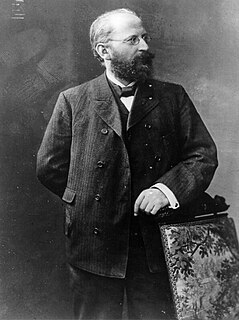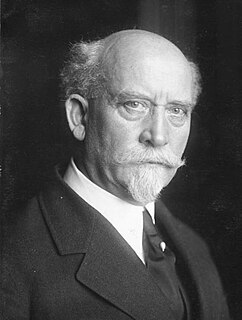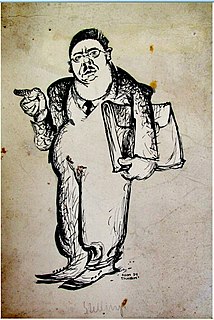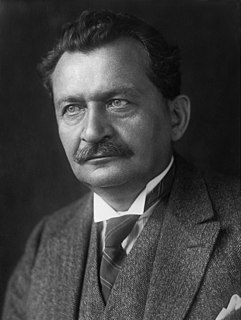 W
WRichard Aßmann became a Works Council Chairman ("Betriebsratsvorsitzender") with the AOK in Berlin. He also involved himself in politics and was a member of the centre-left Social Democratic Party .
 W
WFritz Bauer was a German Jewish judge and prosecutor. He was instrumental in the post-war capture of former Holocaust planner Adolf Eichmann and also played an essential role in starting the Frankfurt Auschwitz trials.
 W
WEduard Bernstein was a German social democratic Marxist theorist and politician. A member of the Social Democratic Party of Germany (SPD), Bernstein had held close association to Karl Marx and Friedrich Engels, but he began to identify what he believed to be errors in Marxist thinking and began to criticize views held by Marxism when he investigated and challenged the Marxist materialist theory of history. He rejected significant parts of Marxist theory that were based upon Hegelian metaphysics and rejected the Hegelian perspective of an immanent economic necessity to socialism.
 W
WBerthold Karl Adolf von Deimling was a general officer of the German Army during World War I.
 W
WEmil Fuchs was a German theologian, the son of Georg Friedrich Fuchs and Auguste Louise Wilhelmine Lonni Hauss.
 W
WKlaus Emil Julius Fuchs was a German theoretical physicist and atomic spy who supplied information from the American, British, and Canadian Manhattan Project to the Soviet Union during and shortly after World War II. While at the Los Alamos National Laboratory, Fuchs was responsible for many significant theoretical calculations relating to the first nuclear weapons and, later, early models of the hydrogen bomb. After his conviction in 1950, he served nine years in prison in the United Kingdom and then moved to East Germany where he resumed his career as a physicist and scientific leader.
 W
WJoseph Joos (1878–1965) was a prominent German intellectual and politician. As a Member of Parliament in Weimar, Joseph Joos grew to become one of the leading voices of the Christian Democratic Union in Germany. His convictions led him to become a political prisoner in the Dachau concentration camp from 1941 to 1945. After World War II, Joseph Joos became a close advisor to West Germany's Chancellor Konrad Adenauer.
 W
WHarry Clemens Ulrich Graf von Kessler was an Anglo-German count, diplomat, writer, and patron of modern art. English translations of his diaries "Journey to the Abyss" (2011) and "Berlin in Lights" (1971) reveal anecdotes and details of artistic, theatrical, and political life in Europe, mostly in Germany, from the late 19th century through the collapse of Germany at the end of World War I until his death in Lyon in 1937.
 W
WErich Koch-Weser was a German lawyer and liberal politician. One of the founders (1918) and later chairman (1924–1930) of the liberal German Democratic Party, he served as Minister of the Interior (1919–1921), Vice Chancellor of Germany (1920) and Minister of Justice (1928–1929).
 W
WJulius Leber was a German politician of the SPD and a member of the German resistance against the Nazi régime.
 W
WPaul Löbe was a German politician and member of the Social Democratic Party of Germany (SPD), who served as President of the Reichstag.
 W
WErnst Melsheimer was a German lawyer.
 W
WErich Mückenberger was a German socialist politician. He began his political career in the Social Democratic Party of Germany (SPD). He became a member of the Socialist Unity Party of Germany (SED) when the East German branches of SPD and the Communist Party of Germany merged after the Second World War. Mückenberger was one of the most high-ranking former Social Democrats in the German Democratic Republic and held several positions in the SED.
 W
WHermann Müller was a German Social Democratic politician who served as Foreign Minister (1919–1920), and twice as Chancellor of Germany in the Weimar Republic. In his capacity as Foreign Minister, he was one of the German signatories of the Treaty of Versailles.
 W
WOtto Nuschke was a German politician.
 W
WHugo Preuß (Preuss) was a German lawyer and liberal politician. He was the author of the draft version of the constitution that was passed by the Weimar National Assembly and came into force in August 1919. He based it on three principles: all political authority belongs to the people; that the state should be organized on a federal basis; and that the Reich should form a democratic Rechtsstaat within the international community.
 W
WPhilipp Heinrich Scheidemann was a German politician of the Social Democratic Party of Germany (SPD). On 9 November 1918, in the midst of the German Revolution of 1918–19, he proclaimed Germany a republic. Later, beginning in the early part of the following year, he became the second head of government of the Weimar Republic, acting in this post for 127 days.
 W
WJohannes Stelling was a German political activist who became a leading SPD politician during the Weimar years. He served between 1921 and 1924 as First Minister (Ministerpräsident) of Mecklenburg-Schwerin.
 W
WOtto Wels was a German politician who served as a member of parliament from 1920 to 1933 and as the chairman of the Social Democratic Party of Germany (SPD) from 1919 until his death in 1939.